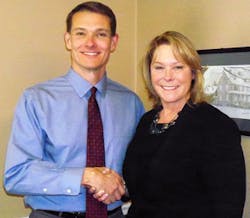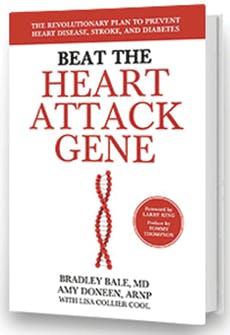The career detour to a physician's office
Hygienist takes on administrative care in practice focusing on oral-systemic health
By Lisa C. Wadsworth, RDH, BS/Psy.
A few months ago, I accepted an offer to be the director of operations for a medical practice. Although working for a physician was never one of my career goals, in some ways I've been preparing for this unique opportunity all my life.
I started my career as a dental assistant, progressed to a certification in implant surgical assisting, and a degree in dental hygiene. Over the years I supplemented my income as a practicing hygienist by writing, lecturing, and forming my own consulting company, Lisa C. Wadsworth, Inc.
------------------------------------------------------------
Other articles to consider reading:
- Oral-systemic health: The time is now!
- Bring the benefit of the research to our patients
- Are dentists interested in the oral-systemic disease connection?
------------------------------------------------------------
My consulting focus was on clinical hygiene training for periodontal disease therapy, surgical implant assisting, patient communications, dental practice team building, and improving operational efficiency.
I've always loved having the opportunity to practice clinically, keeping on top of the latest trends and sharing my knowledge and experience with dental teams throughout the country. I like to think of myself as a living contradiction to the cliché, "Those who can, do. Those who can't, teach."
Recuperation and reinvention
In recent years, repetitive stress injuries to my spine (thanks to poor ergonomics and 30 years in the trenches) and the required surgery and rehabilitation curtailed my clinical practice, but I kept busy writing articles and lecturing at venues that did not require a lengthy plane trip.
During this recovery phase I earned my certification as a personal coach. I had hired one to help me improve my work/life balance and was very pleased with the results. I also finally completed my bachelor's degree in psychology; people do make my world go round!
With my physical rehabilitation nearly completed, I thought the planets were aligning as they never have before. Not only would I be able to return to clinical practice, but my newly earned professional coach certification and psychology degree would improve my value as a team coach and trainer.
For a while, things seemed to go that way. I was working a few days a week in a local periodontist's office, signed up a few new consulting clients, and also began to expand my lecture and article topics to incorporate what I learned from my personal coaching and psychology studies.
Detour ahead
My career path seemed to be on a straight course ... until one day in January, when I received a phone call from my marketing and public relations consultant. It just so happens that my consultant also represents Dr. Charles Whitney, a physician you may have been reading about lately who truly gets the oral-systemic connection and the need to "bridge the gap" between dentistry and medicine.
In fact, Dr. Whitney has been interviewed several times by the editors of DentistryIQ. His four-part CE course, A Comprehensive Review of Vascular Disease, can be found on INeedCE.com. (http://www.ineedce.com/courses.aspx?cat=Medical)
Our phone conversation went something like this:
"I have a client in your area who is looking for a director of operations, and I think you're the perfect fit for the job."
"That's great; is your client a general dentist or a periodontist?"
"Neither. Dr. Whitney is double board-certified in sports medicine and family medicine."
"I can't work in a physician's office!"
"Sure you can! All of your practice consulting skills that pertain to operations and communications are transferable."
"Hmmm, I never thought of it that way."
"Plus your knowledge of periodontal disease and its impact on systemic health is icing on the cake. Dr. Whitney could use your expertise to train his team and educate his patients on the serious impact that periodontal disease can have on their health. You could also be his liaison to the dental community."
"I suppose I could at least speak to him."
"What do you have to lose? He would like to set up an introductory meeting this week."
"What?"
"I made the case for him to hire a hygienist and told him all about you. He is very intrigued by the possibilities."
"Nothing like throwing me into the pool!"
After our phone conversation, I went back to my home office and googled Dr. Whitney. I liked what I found -- several articles validating the link between periodontal disease and systemic disease and an editorial criticizing the American Heart Association for downplaying the association between periodontal disease and heart disease!
I definitely wanted to talk to this man, whether it resulted in a job or not!
Our scheduled meeting went very well. We spoke for hours huddled over our favorite Starbucks coffee. We shared what drives us, challenges us, and what we feel is important for the health of our patients, and how physicians and dentists should refer to one another in a specialty collaboration for total patient health.
As it turns out, Dr. Whitney and I share three core principles that shape the way we live our lives and practice our professions. Call it fate, karma, or the best preparation for a professional interview ever, I had written down and printed out a copy of what matters most to me when interviewing a perspective client or a new job. At one point in our conversation I asked Dr. Whitney what he valued most in his career and personal life. He stated that integrity is of extremely high value, followed by credibility, and most importantly, leaving a legacy.
I shared my paper with Dr. Whitney with a large grin on my face. The words "integrity," "reputation," and "making a difference" stared back at him. So, the deal was done! I was on board, feeling so fortunate to have found a visionary, a medical mentor, and a new adventure.
A day in the life
The "director of operations" job description was definitely within my skill set, but he had ideas for expanding the responsibilities of the position that were so forward-thinking that I could not wait for our next opportunity to brainstorm.
Since beginning my position with Dr. Whitney, I am immersed in team development, internal marketing, and HR responsibilities. I conduct growth conferences for the current team, review resumes for potential new hires, and help all of us focus on developing and executing ideas for sustained growth of the practice.
Despite those functions, patient care comes first. The optimal health-care model we deliver at Revolutionary Health Services is quite different from traditional medicine. Joint participation between two or more clinical team members -- including allied health professonials including dentists and hygienists -- is usually needed to support Dr. Whitney's disease prevention and disease management protocols and provide the attention to detail needed for new-patient evaluations or an annual wellness exam.
As a medical practice devoted to bridging the oral-systemic gap, special attention is giving to the efficient sharing of accurate patient information. Strong communication skills, detailed documentation, and a personalized approach are the foundation for optimal collaborative care. Fortunately, my many years of consulting in best-practice scenarios have given me the tools to transfer easily into a medical setting.
My public-facing duties include being the practice liaison to the dental community, which has been my home both locally and nationally for 30 years. What a joy to speak with dental practices to share test results from DNA testing, blood markers focused on inflammatory processes, and the more-than-significant oral-systemic link association to many diseases and conditions.
Putting oral-systemic theories into practice
Throughout the workday, Dr. Whitney provides me with a firsthand medical perspective about oral health, especially the negative impact that periodontal disease has on the systemic conditions that patients are being treated for -- especially vascular disease.
Dr. Whitney first became aware of how relevant the perio-vascular link is after he completed the preceptorship training in the Bale-Doneen Method for Heart Attack and Stroke Prevention. When he came back from the intense, three-day program that included extensive science and literature reviews that substantiated the oral-systemic connection, he refocused his medical practice by introducing his patients to the Bale-Doneen principles and seeing remarkable results.
After working with Dr. Whitney for less than a month, he signed us both up for three days of intense Bale-Doneen training in Las Vegas. The program was an update for him, consisting of stronger evidence about the importance of controlling the inflammatory problems caused by uncontrolled periodontal disease.
For me, I was exposed to a full medical breakdown about the inflammatory processes that plague the human body. Not only did I learn more than I could easily digest in the three days of preceptorship training, but my role as a hygienist on the front lines of the war against periodontal disease was further validated and elevated.
In my opinion, if you believe that more can and should be done for our patients through closer medical and dental collaboration, you should seriously consider attending the next session of Bale-Doneen preceptorship training.
The presentation of medical and dental research will strengthen your resolve to take a stand against tolerating bloody prophies. No longer will you feel alone in your belief that the health of the mouth affects the health of the body!
One of the most astounding facts that I came away with is a study published in Circulation, 2013 Mar 19;127(11):1219-1228. The paper concluded that up to 50% of events (heart attacks) were triggered by oral bacteremia!
Back to what I learned:
- The medical definition of inflammation; what causes it; the chain reaction of negative events the body uses to fight from within; and its inherent threat to the quality and longevity of life.
- There are validated blood tests, including inflammatory markers that point directly to how undiagnosed or untreated periodontal disease can undermine the best efforts of a physician.
- Research to support the link between periodontal disease and significant medical conditions, some published more than 10 years ago in medical journals.
- The program focused heavily on vascular inflammation and oral bacteremia. At one point I had to remind myself that I was attending a medical conference and not a dental conference.
- Talk about professional growth! Previously I'd never felt completely confident to guide the naysayers in the dental community to get on course to improve the overall health of their patients.
I now understand why Dr. Whitney considered the Bale-Doneen heart attack and stroke prevention principles to be the de facto blueprint for bridging the oral-systemic gap and why he has coined the phrase, "Periodontal and endodontal infections are medical diseases that physicians cannot treat." We need collaborative care for total patient wellness.
Paving a road less traveled
The career path that a hygienist takes is a personal choice; clinical patient care is where we all begin. However, the profession of dental hygiene can be expansive -- full of twists and turns -- some voluntary, others unexpected. Dedication to personal convictions, an open mind, and a yearning for knowledge about achieving total patient health led me to ask myself two questions: "What else?" and "What if?"
Did I set out to work with a physician? No. But through my 30-year journey in dentistry, I have kept the company of forward-thinking clinicians who have served as mentors, friends, and pushed me (and themselves) to think beyond the dental arena for research and information that could potentially change the art of practicing dentistry and oral hygiene patient care.
At present, Dr. Whitney and I have begun to build relationships between physicians and dentists in our local area and will be expanding our efforts across the country to bring like-minded health-care professionals together.
Our mission is to break down the silos of medicine and dentistry and influence both specialties to heed the warnings of well-documented research on the many oral-systemic links.
If you want to stay abreast of the progress we are making, visit www.RevolutionaryHealthServices.com and sign up for our health-care professionals newsletter or email me at [email protected].
Lisa C. Wadsworth, RDH, BS/Psy., is the owner of Lisa C. Wadsworth, Inc., a consulting business focused on coaching and education for the entire dental team on periodontal protocol, oral-systemic links, implant dentistry, and ergonomics. She was recently hired by Charles Whitney, MD, to be the director of operations of his medical practice, Revolutionary Health Services. Their goal for collaboration is to elevate the level of patient care by fostering relationships between dentists, physicians, and all auxiliary team members. Lisa is a frequent writer for many national hygiene publications and a national speaker. With more than three decades of experience in the dental implant and periodontal therapy arenas, Lisa began her career as a dental assistant, progressed to a certification in implant surgical assisting, a degree in dental hygiene, and a bachelor's in psychology. Contact Lisa at [email protected].
Wanted: Oral-systemic specialists By Dr. Charles Whitney
As Lisa stated in the main portion of this article, I firmly believe that periodontal and endodontal infections are medical diseases that physicians cannot treat.
Strong evidence is mounting that the oral bacteria entering the bloodstream is contributing to many systemic diseases. The door to bacterial flow must be shut down by dental teams. In order to do so, there must be zero tolerance for any blood in the sink!
In my opinion, dental hygienists are frontline oral-systemic clinicians, especially when it comes to patient education and being the home oral-care compliance cops.
Although we don't treat periodontal disease at Revolutionary Health Services, we do use salivary diagnostic testing to determine if our patients have periodontal disease or high levels of oral pathogens, which can enter the bloodstream and have a negative impact on other conditions, such as heart disease and diabetes for which I am currently treating them.
In addition to her operational responsibilities, I will be depending heavily on Lisa to impart to these patients the importance of having their periodontal disease treated and referring them to qualified dentists or periodontists and to help me lead by example in bridging the oral-systemic gap.
I strongly encourage all dental professionals to stake their rightful claim as oral medicine specialists. You have the potential to impact lives, not just mouths!
Dr. Charles Whitney graduated from Philadelphia's Jefferson Medical College in 1990 and completed his family practice residency at the David Grant United States Air Force Medical Center. He is double board-certified in the specialties of family medicine and sports medicine. His experience includes seven years as an Air Force physician and seven years in the University of Pennsylvania Health System before establishing the first direct primary care practice in Pennsylvania, Revolutionary Health Services, in 2003. Dr. Whitney can be contacted at [email protected].
Past RDH Issues



